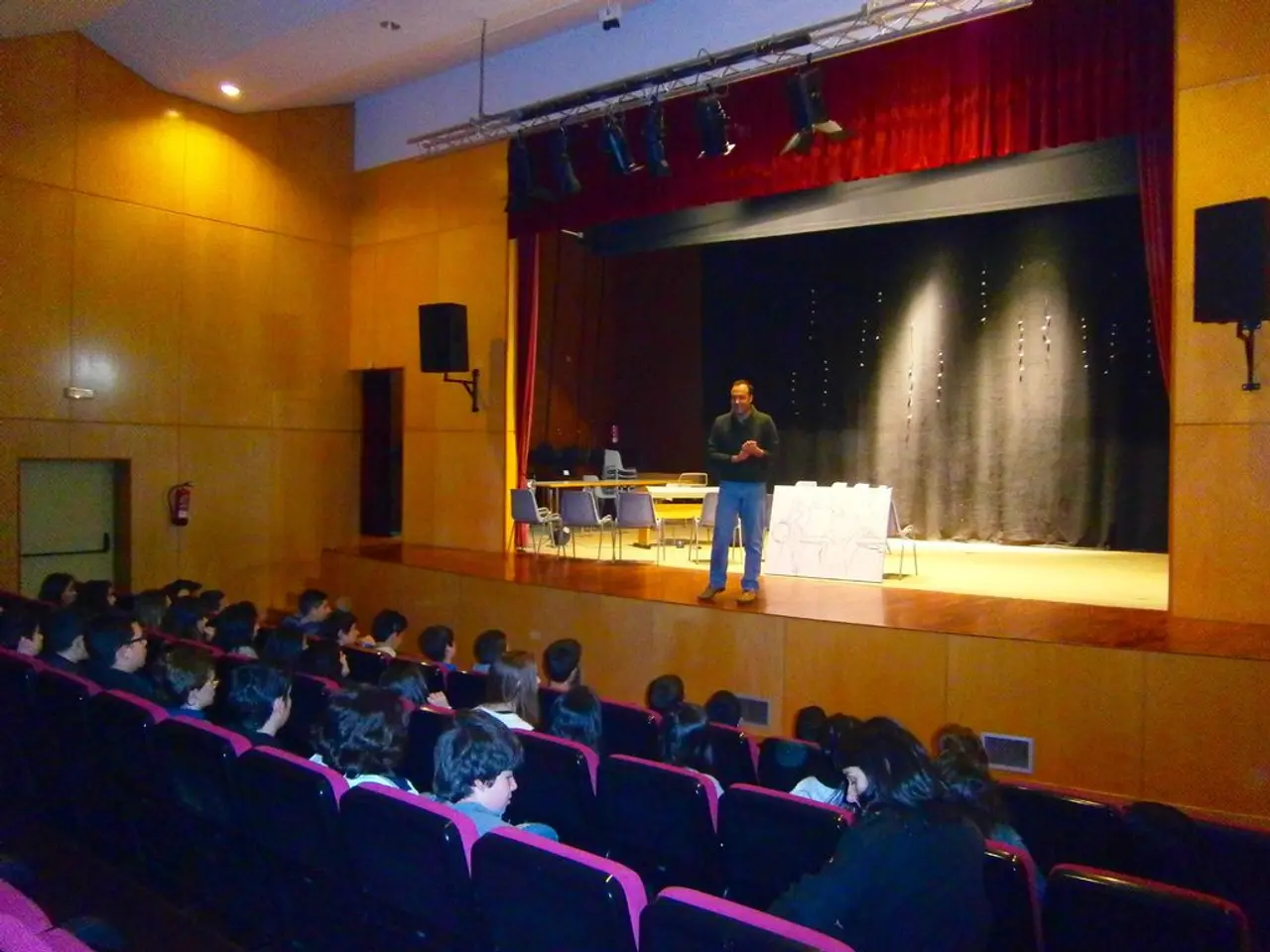Berlin Theatre Omits Certain Narratives: Examination of Unrepresented Tales
In the heart of Europe, Berlin's theatre scene has long been a platform for reflection, critique, and dialogue on socio-political issues. A year ago, concerns were raised about the absence of stories that acknowledge the real suffering of Palestinians and Israelis, engage with antisemitism and Islamophobia, and provide a voice for diverse populations.
Fast forward to October 7, 2023, a date that cast a cloud over celebrations across the city. This moment of callous killing and routine delivery of death on a grand scale has prompted Berlin's theatres to respond in various ways.
One such response can be seen in the play, "Fiddler! A Musical!", at Hebbel am Ufer, where October 7 is mentioned as a poignant reminder of the ongoing conflict. The play Das Schiff der Träume, an absurdist tragifarce set on a boat that sinks in the Mediterranean, inspired by Federico Fellini, also touches on the theme of displacement and suffering.
Michel Friedman, known for his sharp conversations about Jewish life in Germany, has had conversations about October 7 at the Berliner Ensemble's Neues Haus stage. Meanwhile, Alena Jabarine, who led the Gaza Talks series, continues to provide a platform for discussions on the complexities of the Israel-Palestine conflict.
The Maxim Gorki Theater, a site of postmigrant theatre, insists on its subjects being understood as complex, heterogenous beings. HAU, on the other hand, has maintained a more open attitude, seeking to understand the different and complex lived realities of people in Israel and Palestine, and standing for the right of everyone to a life in peace and without fear.
The Volksbühne's summertime Festiwalla festival provided a stage for Mein bedrohliches Gedicht, a sixty-minute monologue by Dareen Tatour about her incarceration by the Israeli state. The festival also offered stages for the experiences of Basta Theatre since its 2015 founding, as well as a mixed-media performance by Jenin's Freedom Theatre.
However, there is a noticeable absence of stories of relationality on Berlin's stages. Palestinian actors Karim Daoud and Maryam Abu Khaled have remained off the stage since October 7, and they have spoken out about being sidelined. Most actors of the former Exile Ensemble have entered into artistic exile.
In the absence of such stories, we are left with an abdication of responsibility on Berlin's stages, and we all know too well what can happen amidst such silence. It is more important than ever to challenge abstractions and remind ourselves of the relationality that we all share.
Despite the lack of specific information about how Berlin theatres have responded to the events of October 7, 2023, in their productions and narratives over the past year, it is clear that the city's theatre scene is actively engaging with the complexities of the conflict and seeking to provide a platform for diverse voices. The search for such stories continues.
- Amidst the political dialogues, Berlin's theatres have also delved into other aspects of life, with the Maxim Gorki Theater featuring postmigrant theatre that emphasizes the complexity and diversity of individuals.
- The fashion-and-beauty industry, perhaps taking a cue from the theatres, has been promoting inclusivity and diversity in its own way, striving to represent various ethnicities and cultures.
- In the midst of these transformations, the city's food-and-drink scene has also been evolving, with an increasing number of restaurants offering authentic Middle Eastern cuisine, reflecting the cultural dynamics of the city.
- As the city moves forward, discussions about relationships, pets, travel, cars, and shopping continue to flourish in various forums, yet the absence of narratives about the experiences of Palestinians and Israelis remains a significant gap.




